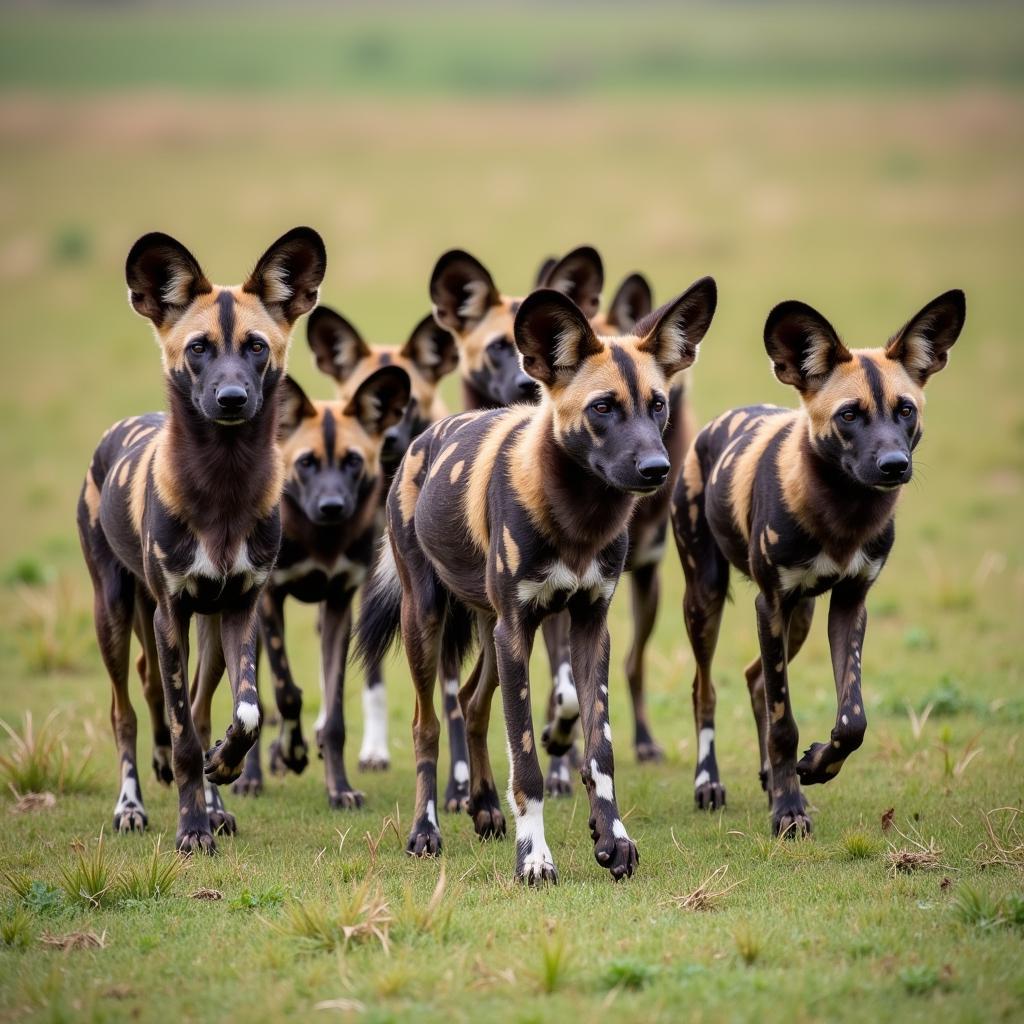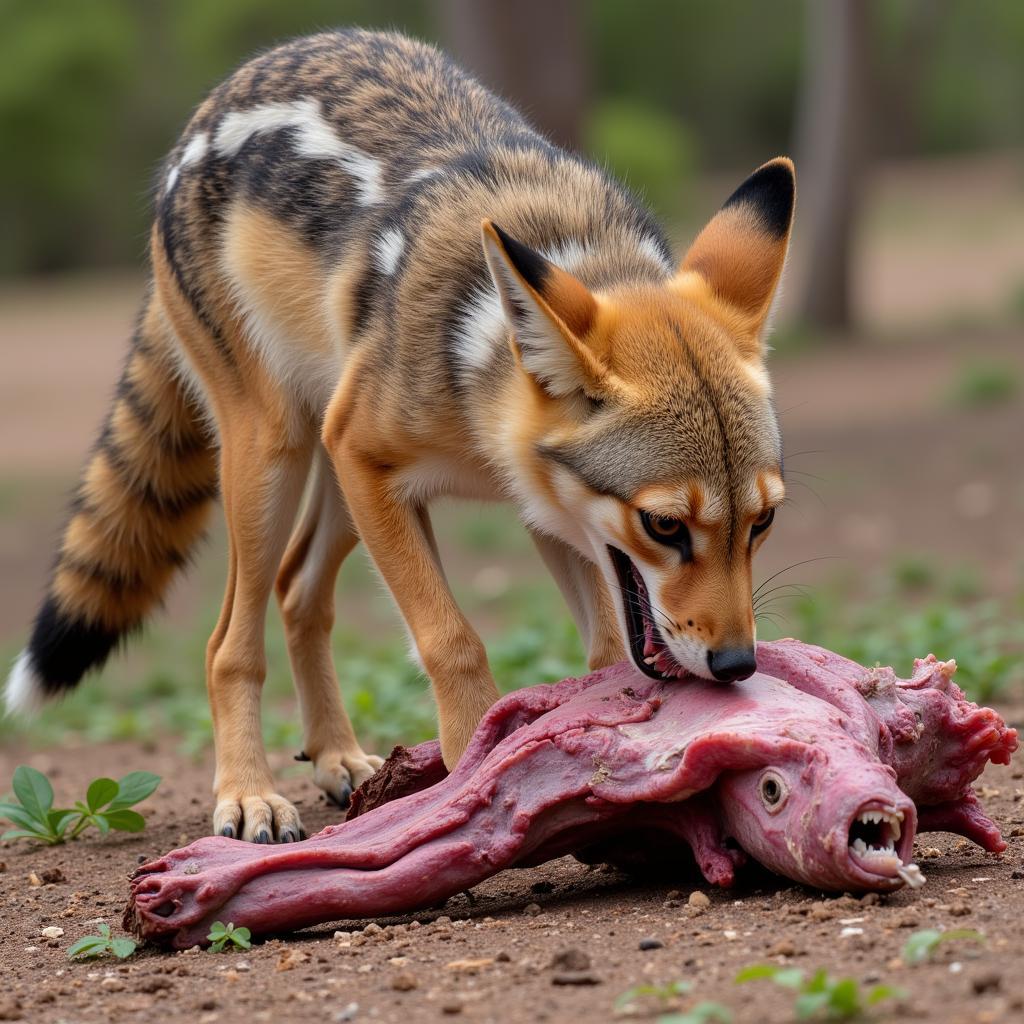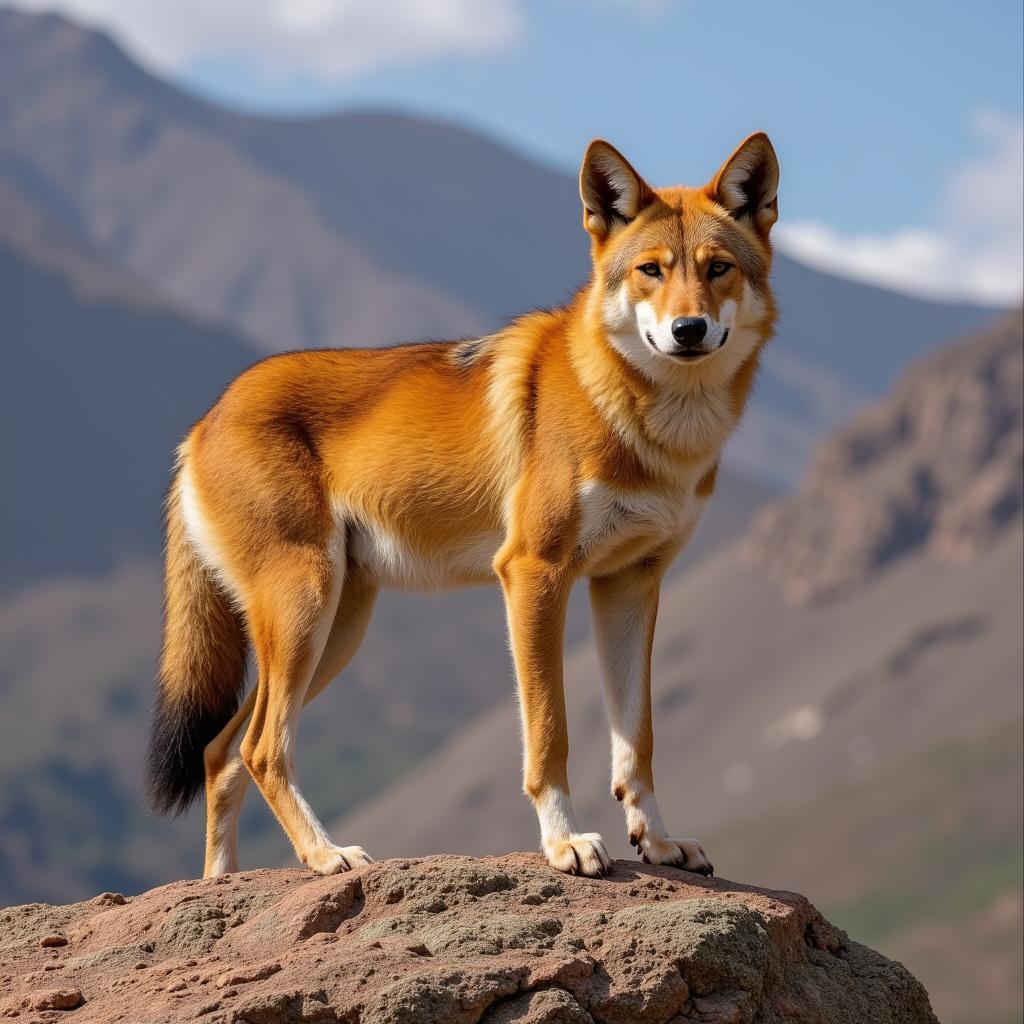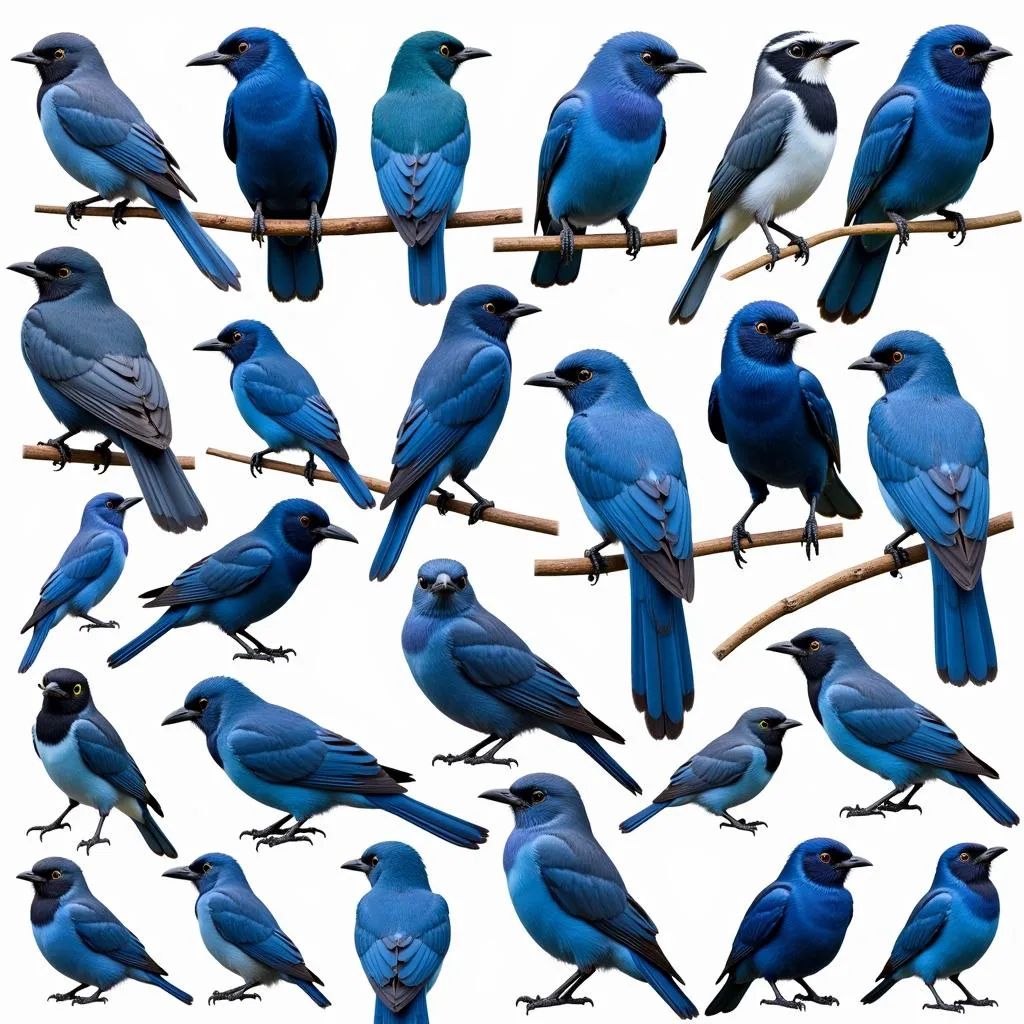African Canines: Exploring the Diverse World of Dogs in Africa
Africa, a continent known for its diverse wildlife, is also home to a fascinating array of canine species. From the iconic painted wolves to the lesser-known African wild dogs, these animals play a crucial role in their ecosystems. This article delves into the captivating world of African Canines, exploring their unique characteristics, habitats, and conservation challenges.
Beyond the Big Cats: Unveiling Africa’s Canine Diversity
While Africa’s big cats often steal the spotlight, the continent boasts an impressive diversity of canines. These animals, belonging to the Canidae family, exhibit a wide range of adaptations, behaviors, and ecological roles. From the sandy plains to the dense jungles, African canines have carved their niche in the continent’s tapestry of life.
 African Wild Dog Pack
African Wild Dog Pack
One of the most iconic African canines is the African wild dog, also known as the painted wolf. These highly social animals are renowned for their striking, irregular markings and cooperative hunting strategies. Unlike many other canine species, African wild dogs live in packs led by an alpha pair, showcasing a complex social structure.
Adapting to Thrive: Habitats and Ecological Roles
From the arid Sahara Desert to the lush Congo Basin, African canines have adapted to thrive in a variety of habitats. The fennec fox, with its oversized ears, has evolved to survive in the scorching heat of the desert, while the Ethiopian wolf has made its home in the high-altitude grasslands of the Ethiopian Highlands. Each species has developed unique physical and behavioral adaptations that allow them to flourish in their specific environments.
African canines play a vital role in maintaining the balance of their ecosystems. As predators, they help regulate prey populations, preventing overgrazing and maintaining biodiversity. For instance, the African bulldog, a powerful breed known for its strength and tenacity, has historically been used for hunting and guarding livestock.
 Side-striped Jackal Scavenging
Side-striped Jackal Scavenging
Facing the Threats: Conservation Challenges and Efforts
Despite their ecological importance, many African canine species face numerous threats, primarily due to human activities. Habitat loss, driven by deforestation and agricultural expansion, is a significant concern. Additionally, human-wildlife conflict, disease transmission from domestic dogs, and poaching pose serious risks to their survival.
Conservation efforts are crucial to protect these remarkable animals. Establishing protected areas, promoting responsible land management practices, and mitigating human-wildlife conflict are essential steps towards ensuring their long-term survival.
 Ethiopian Wolf in Highlands
Ethiopian Wolf in Highlands
FAQs: Unraveling the Mysteries of African Canines
1. What is the rarest canine in Africa?
The Ethiopian wolf, with an estimated population of fewer than 500 individuals, holds the unfortunate title of being Africa’s rarest canine.
2. Are African wild dogs dangerous to humans?
While African wild dogs are skilled predators, attacks on humans are extremely rare.
3. How do African canines communicate with each other?
African canines use a variety of vocalizations, including barks, howls, and growls, to communicate with each other. They also rely on body language, such as tail wags and ear positions, to convey messages.
4. What is being done to protect the African jungle dog?
Conservation efforts for the African jungle dog, also known as the bush dog, focus on habitat protection, anti-poaching patrols, and community education programs.
5. Can I keep an African canine as a pet?
While some African canine species, like the bat-eared fox, are occasionally kept as exotic pets, it is generally not recommended. These animals have specific needs that are best met in their natural habitats.
Exploring Further: Delving Deeper into African Wildlife
Interested in learning more about the fascinating world of African wildlife? Discover more about the intriguing characteristics and behaviors of African cats fang or explore the remarkable story of the African dog bred to hunt lions.
Need Assistance? Contact Us!
For inquiries or assistance regarding African wildlife conservation efforts or travel information, our team is here to help. Reach out to us via:
Phone: +255768904061
Email: kaka.mag@gmail.com
Address: Mbarali DC Mawindi, Kangaga, Tanzania
Our dedicated customer service team is available 24/7 to provide support and answer your questions.

